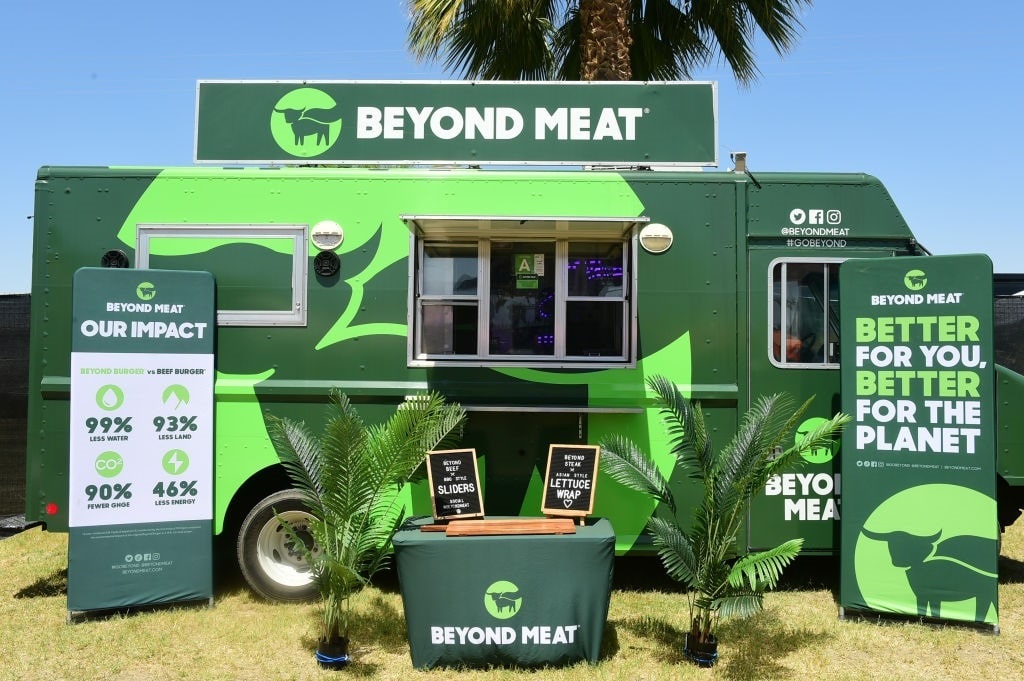Investors and consumers show growing distaste for faux products, whether edible or drivable.
A growing list of potentially intractable problems confronts the alternative meat industry, which includes both plant-based substitutes and cultured “cell-grown” meats. Consumers have not managed to swallow the fake taste (beet juice may be a sad substitute for beef blood), the Beverly Hills pricing, or the growing awareness that the counterfeits are highly processed and largely dependent on monocultured plant crops such as corn, soybeans, and wheat that present their own environmental challenges. Much as they have in the EV and solar panel markets, buyers are waking up to a triple-shill: Fake meat “alternatives” seem to be overpriced, unpalatable, and pollute the planet despite claims of climate rescue.
Launched as eco-friendly, healthful alternatives to the horrors of industrial animal processing, fake meat ventures have attracted billions of dollars from investors to match the marketing buzz. Businesses eager to tap the anticipated goldmine have crafted a plethora of faux foodstuffs to fuel the hype. However, the market for fake/alternative meats has been declining sharply and will likely witness more decreases in 2024, including attrition as small players are gobbled up by the better-capitalized.
A Tale of Two Brands

(Photo by Vivien Killilea/Getty Images for REVOLVE)
Two prominent producers that have seen their fake meat fortunes quickly wane are Upside Foods and Beyond Meat. The catchy names attracted a lot of investment dollars, but the profits have yet to follow. Upside Foods, a Bill Gates darling, launched into the “cultivated” or “lab-grown” sphere. Beyond Meat manufactures simulated chicken nuggets and other meat imposters from plant ingredients. Both companies amassed enormous sums for their undertakings; both have encountered choppy operational waters.
Upside Foods obtained USDA approval to manufacture and sell lab-grown chicken in 2023. The promotional sales pitch was an “industry-disrupting” venture “with a planned annual capacity of tens of millions of pounds of cultivated meat products.” The company has allegedly failed to produce a single pound of cultivated meat at a profit, unable to overcome processing hurdles to achieve production at scale.
Beyond Meat lost sales precipitously since 2022, in both supermarkets and restaurants. Its stock price has dropped some 90%. Many other fake meat start-ups are shrinking or folding, as product novelty wears off and consumer wallets close. One investment site counsels to avoid Beyond Meat: “This stock is likely headed to zero within the next few years unless it can make a miraculous turnaround.” It is not just Beyond Meat but the entire simulated meat industry that is praying for a Hail Mary market rescue.
Is Fake Meat Junk Food?
Despite all the marketing hype, fake meat promotions have not delivered on their rosy promises, and consumers are savvy. The proof is displayed on grocery store shelves:
“[A] new global survey of 1,000 consumers for vegan firm Strong Roots found that despite 61% of consumers increasing their plant-based intake, 40% are reducing or cutting out fake meat from their diets.
“Almost half (47%) said taste was behind the decision, followed by 36% who cited artificial additives and another 36% who stated it was the processed nature of the products which changed their habits.”
Clearly cost is also a factor for those struggling with food as well as energy and housing inflation. However, live beef prices are rising and expected to break records in 2024 due to low US inventories: This could make factory-fabricated alternatives more affordable, but they still have work to do in the taste and healthfulness departments. It is unclear whether either of those challenges can be overcome. Consumers avoiding highly processed foods loaded with odd additives may select fresh vegetables or revert to a grass-fed steak rather than ingest fabricated simulations that will never be organic or genuinely fresh.
Backlash by farmers and food activists also continues against synthetic meats. Italy has banned the stuff, though that may be challenged if the European Union decides to approve cultured meat. But government imprimatur does not equal consumer approval.
Renewables Implications
Consumers appear to be losing affection for EVs and solar panels as well. Much like the fake food industry, the fake energy industry has overpromised and delivered disappointments. EVs are very expensive, but, despite large regressive subsidies and government marketing, sales are plummeting. Like faux meats, the products do not deliver as more people learn of the pollution and labor abuses involved in their manufacture, the problems of lithium mining, and vehicle disposal (not so “renewable” after all). Threats to the electric grid, vehicles stalled uselessly in the recent cold spell, and plummeting used EV prices have dulled consumer appeal. Solar panels and heat pumps are confronting similar shortcomings.
The significant problems that overshadow the fake meat, EV, and solar panels industries seem to be turning customers and investors cold, causing some analysts to predict sharp market retractions in 2024.

